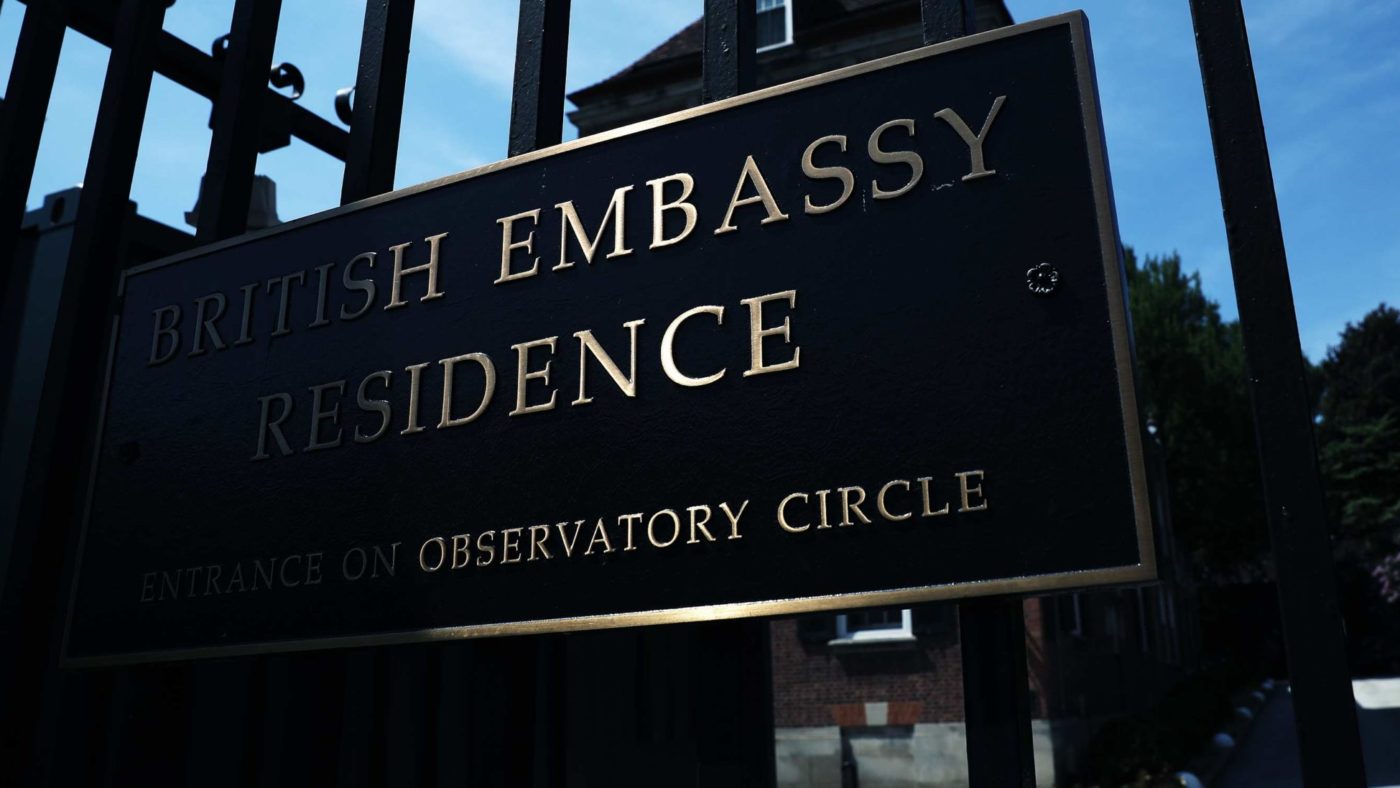It’s a strange world when the US president has more time for Kim Jong-un than Kim Darroch, until recently the British ambassador to the United States.
His departure was inevitable from the moment Donald Trump erupted in fury at a leaked memo describing his administration variously as “clumsy”, “inept”, “dysfunctional” and “faction-riven”.
Darroch’s exit was emblematic of contemporary politics on both sides of the Atlantic. Trump refuses to deal with those who do not pay him what he deems sufficient respect – even if in private conversations. This has both pros in terms of pushing his ideas through – and in this case cons by making the President seem petty and petulant.
Here in the UK, meanwhile, things quickly descended into a partisan slanging match. Opponents of Boris Johnson did their best to pin the blame on him for not giving the ambassador sufficient backing. Never mind that by that point Sir Kim’s position was clearly untenable, or that Johnson is – for now at least – not even a serving minister.
Sir Kim himself should not shoulder any responsibility, however. Diplomats are paid to report their opinions from around the world. The blame, and hopefully the punishment, lies exclusively with whoever leaked the contents of the memo.
That such information should have come out is all the more remarkable, given that one of Sir Kim’s memos was also leaked back in 2016. The suggestion then that Trump might be “open to outside influence” shows Sir Kim was nothing if not prescient. And if, as some alleged, Sir Kim’s advice was felt to be too anti-Trump, this is a matter for the UK Government, not the USA.
Unfortunate though this week’s events were for Sir Kim himself, his departure will not rent the ‘special relationship’ asunder. As the recent Margaret Thatcher Conference on Britain and America showed, ours remains a steadfast alliance, even if personality clashes might occasionally muddy the waters.
The contretemps with the Iranian regime in the Strait of Hormuz was ample evidence of just how important strong, reliable allies are in an uncertain and volatile world.
And on a happier note, British and American trade negotiators met in London yesterday for the sixth round of the Trade and Investment Working Group, laying the groundwork for a future US-UK trade deal. If the British side has occasionally seemed a little over-eager about securing a post-Brexit agreement that is understandable, given the potential prize on offer.
For all the hyperbole about chlorinated chickens or imagined nefarious plans to privatise the NHS, the bottom line remains that more transatlantic trade will mean lower prices in the shops, more jobs and more prosperity.
Whoever our next man or woman in Washington is would do well to focus on that, as well as keeping a close eye on their email distribution list.


